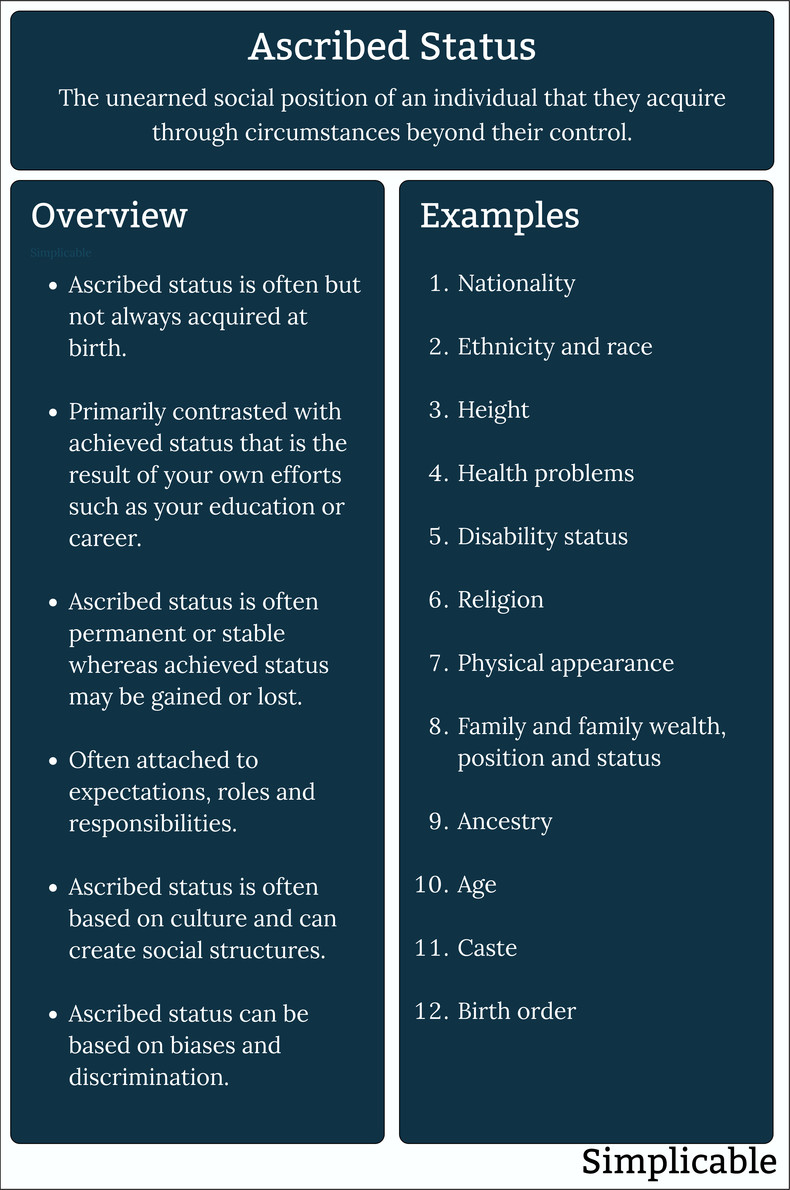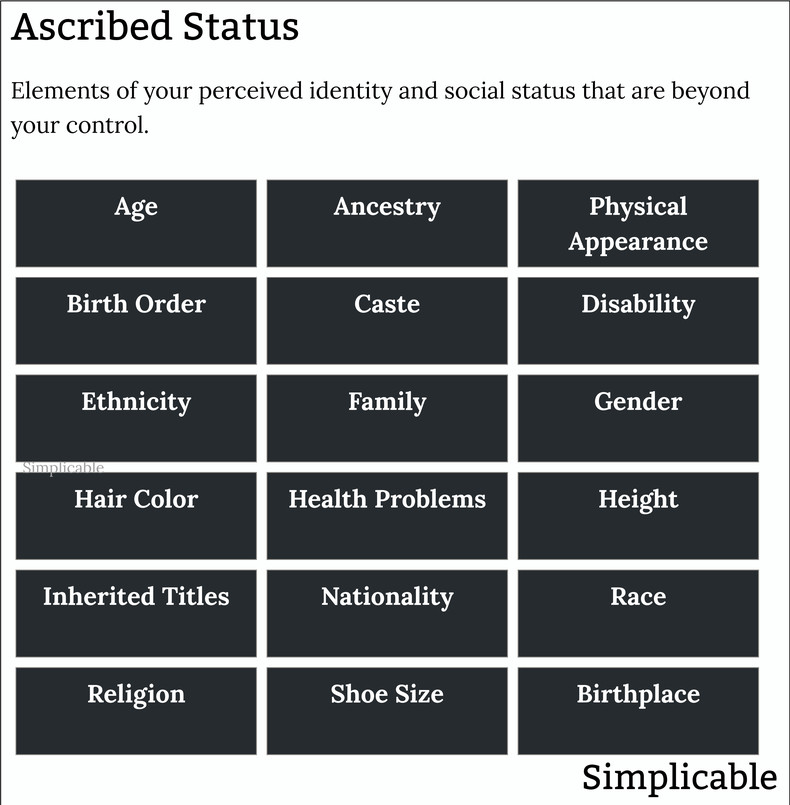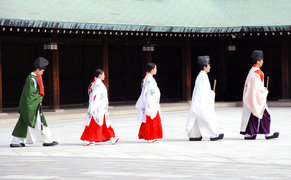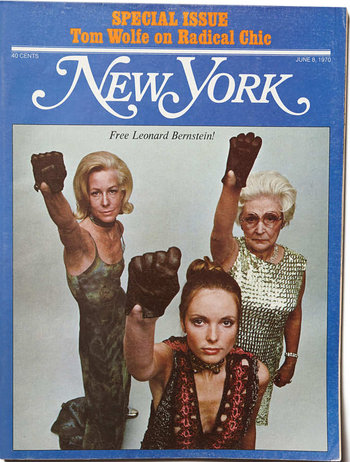Age | Ancestry |
Birth Order | Birthplace |
Caste | Disability |
Ethnicity | Eye Color |
Family | Family Role (e.g. Son, Daughter, Aunt, Uncle) |
Gender | Hair Color |
Health Problems | Height |
Inherited Titles | Nationality |
Physical Appearance | Race |
Religion | Shoe Size |
Ascribed Status vs Achieved Status
Achieved status is anything that influences how you are perceived that is within your control. For example, your income or educational achievements are achieved status.Grey Areas
The delineation between ascribed and achieved status is often a grey area. For example, physical beauty can greatly influence how you are perceived and is a type of social status. Beauty is often considered natural as some individuals are born with features that are considered aesthetically appealing by a culture. However, some individuals who are considered unusually attractive feel that they achieved this status with efforts such as personal presence, fashion, personal care, beauty routines and lifestyle choices.Discrimination
Treating people differently based on factors that they can't change is often considered discrimination. There are exceptions based on practical realities. For example, a national pension that is offered based on your age wouldn't be considered discrimination because this is based on the practical reality that people often need more support in old age. As an example of discrimination, schools in Japan often require all students to have black hair such that students with other hair colors are admonished and essentially required to dye their hair. This was discontinued recently in some school districts, including Tokyo, but students with non-black hair are still commonly required to submit proof of their natural hair color -- a process that is still discriminatory.Overview
Ascribed status are circumstances beyond an individual's control that impact their perceived status in a social or cultural context. This includes things you are born with such as ethnicity and things that can change with time such as age.
Summary
The factors that contribute to ascribed status are cultural. For example, hair color may be meaningless to one culture but viewed as an element of your social identity and status in another.





















